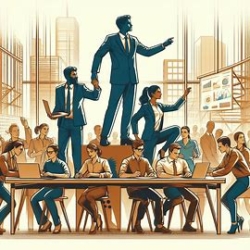May 15, 2024
Mastering GenAI: how to bridge skills gaps and boost employee confidence
 Six in ten employees will require training before 2027 according to the World Economic Forum, which estimates that the talent shortage will exceed 85 million people by 2030. The introduction of GenAI in the workplace means this skills gap is set to expand. In Udemy’s recent Global Learning & Skills Trends Report, we found that there are three key learning and skills trends for 2024. Firstly, we are seeing that companies are increasingly looking to hire based on skills rather than formal qualifications like degrees, as these hires more closely align with long-term strategic goals and are better equipped to upskill existing teams. More →
Six in ten employees will require training before 2027 according to the World Economic Forum, which estimates that the talent shortage will exceed 85 million people by 2030. The introduction of GenAI in the workplace means this skills gap is set to expand. In Udemy’s recent Global Learning & Skills Trends Report, we found that there are three key learning and skills trends for 2024. Firstly, we are seeing that companies are increasingly looking to hire based on skills rather than formal qualifications like degrees, as these hires more closely align with long-term strategic goals and are better equipped to upskill existing teams. More →







































May 16, 2024
We need a cultural revolution in the way we talk about women’s health
by Siera Torontow • Comment, Wellbeing, Workplace